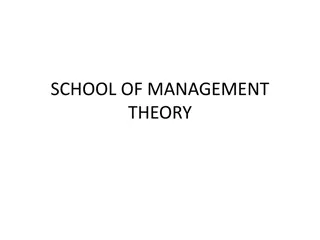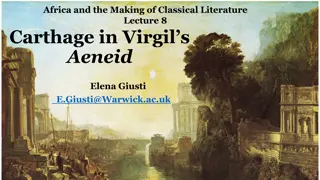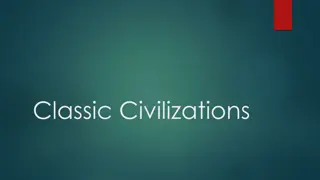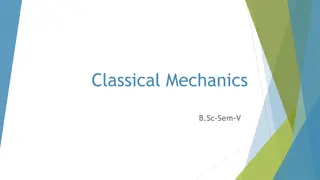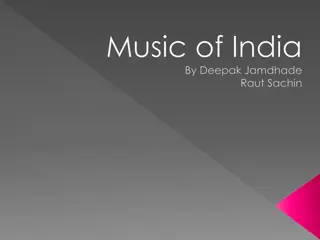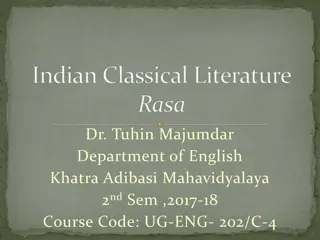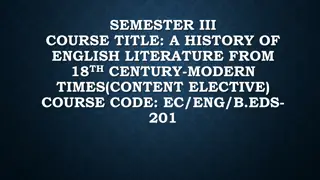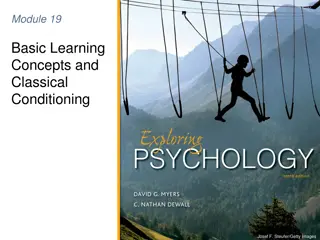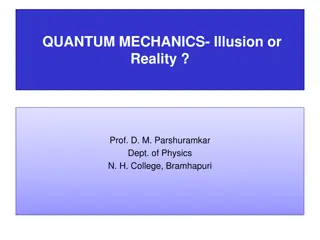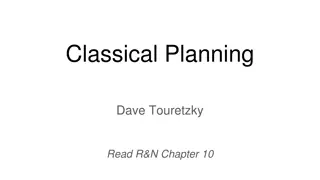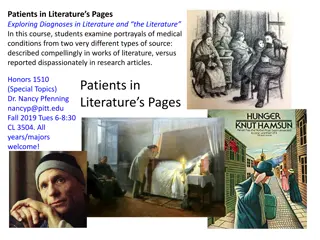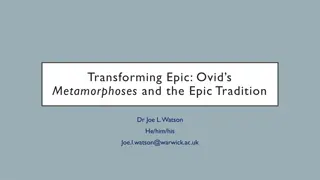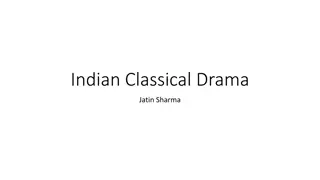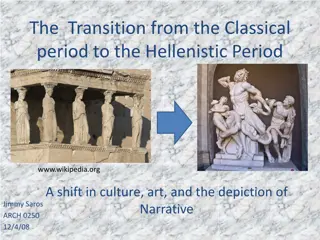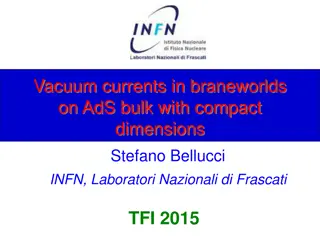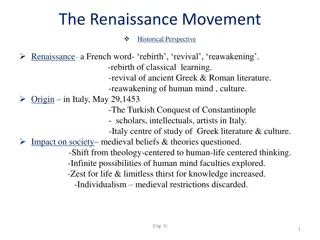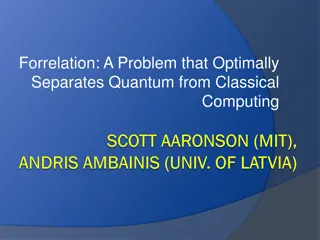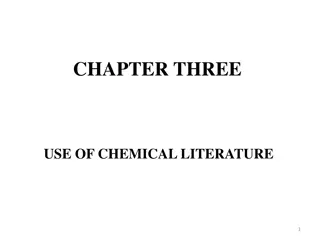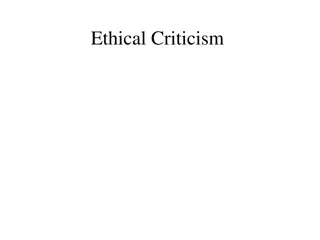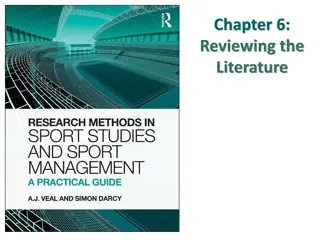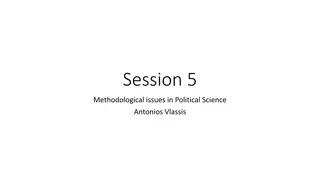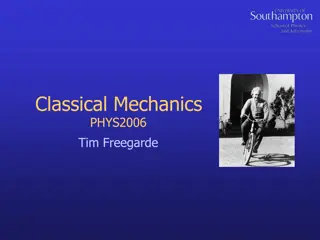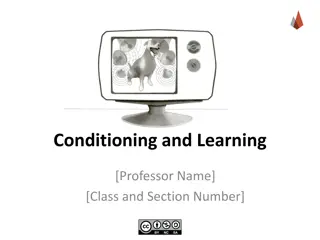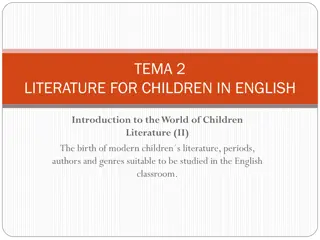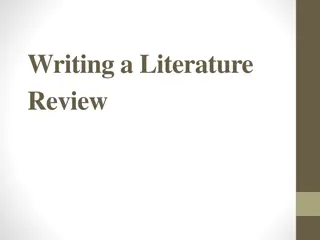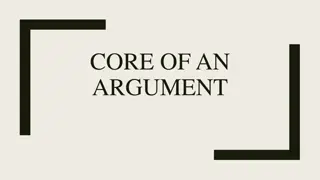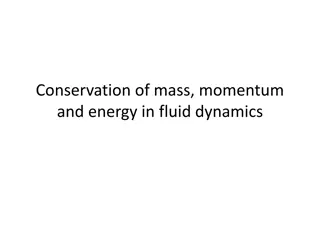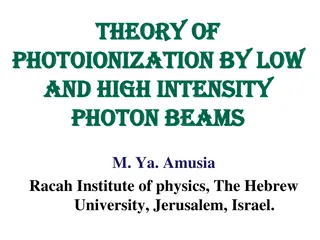Evolution of Management Theories: Classical Approach and Scientific Management
Explore the evolution of management theories focusing on the Classical Approach and Scientific Management. The Classical Approach emphasizes efficiency and specialization, while Scientific Management introduced systematic methods to increase productivity. Learn about key figures like Frederick Winsl
6 views • 31 slides
Carthage: A Heterotopic Space in Classical Literature
Carthage, as depicted in Virgil's Aeneid and through artworks by Claude le Lorrain and J.M.W. Turner, is examined as a heterotopic space in classical literature. The concept of imagined geographies and heterotopias is explored in relation to Carthage, highlighting how it was represented, contested,
0 views • 31 slides
Understanding Classical Civilizations: Timeline Analysis and Periodization
Explore the concept of periodization by creating a timeline of significant life events and categorizing them into distinct periods. Learn about classical civilizations, time periods, and the process of dividing history into eras. Dive into the Classical Age and its contributions to human development
1 views • 24 slides
Effective Strategies for Literature Searches and Re-Use of Scholarly Literature
Conducting literature searches involves surveying existing publications and information on a specific topic. Different search strategies, from simple searches to systematic queries and snowballing, are utilized based on research needs. Learning objectives include building search strategies, using ad
3 views • 19 slides
Understanding Classical Mechanics: Variational Principle and Applications
Classical Mechanics explores the Variational Principle in the calculus of variations, offering a method to determine maximum values of quantities dependent on functions. This principle, rooted in the wave function, aids in finding parameter values such as expectation values independently of the coor
0 views • 16 slides
Diverse Music Traditions of India - Classical to Folk
Explore the rich musical heritage of India, encompassing classical Carnatic and Hindustani music, folk melodies, film songs, and pop music. Learn about the intricate nuances of Indian classical music, its historical evolution, and the variety of genres within the music landscape of the country.
0 views • 8 slides
Understanding Rasa Theory in Indian Classical Literature
Indian Classical Literature explores the concept of Rasa, elucidating its significance and role in the arts. Rasa is defined as the essence that is relished by the audience, encompassing a range of emotional experiences from aesthetic to metaphysical realms. The theory discusses the elements that co
1 views • 23 slides
Introduction to Isixhosa Language and Literature - Exploring Characters and Themes
This content provides an overview of Isixhosa as a first additional language (FAL) and delves into key aspects of literature such as character development and themes. It discusses the importance of characters in storytelling, emphasizing the significance of round and flat characters. The article als
3 views • 28 slides
Exploring English Literature from the 18th Century to Modern Times
This course focuses on major literary movements from the 18th century to modern times, examining the history of modern literature and exploring overlapping trends and traditions. Students will critically analyze historical texts, write organized critical essays, understand word structures, and grasp
1 views • 9 slides
Comprehensive Literature Review Guidelines for Your Dissertation
Discover expert guidelines for conducting a thorough literature review in your dissertation. Explore topics such as literature search strategies, theoretical frameworks, review of the literature, synthesis, and analysis, with actionable tips provided throughout.
0 views • 11 slides
Examples of Classical and Operant Conditioning
Robert receiving a ticket for driving under the influence illustrates operant conditioning with negative punishments, while Chris being afraid of dogs after being bitten showcases classical conditioning with stimulus generalization. Jacob's joy from smelling his date's cologne demonstrates classical
1 views • 9 slides
Understanding Basic Learning Concepts and Classical Conditioning
Acquiring new information and behaviors through experience is known as learning. One common way we learn is through associative learning, where we connect certain events together. This process can take the form of classical conditioning, where stimuli evoke automatic responses, or operant conditioni
1 views • 14 slides
Exploring Quantum Mechanics: Illusion or Reality?
Delve into the fascinating realm of quantum mechanics with Prof. D. M. Parshuramkar as he discusses the contrast between classical and quantum mechanics. Discover how classical mechanics fails to predict the behavior of electrons in atoms and molecules, leading to the development of quantum mechanic
1 views • 70 slides
Exploring the Significance of Persian Language and Literature in Indian History
Persian language and literature hold a crucial place in Indian history, serving as a prime source for understanding the medieval period. Scholars in India have dedicated their lives to preserving and promoting Persian history, language, and literature. The rich cultural heritage of India, dating bac
0 views • 9 slides
Mastering the Literature Review Process
Understanding the significance of literature review, this guide emphasizes the essential steps involved in conducting a successful literature review - from planning and research problem identification to critical analysis and contribution to existing literature. It explains the importance of develop
0 views • 16 slides
Effective Strategies for Conducting Business Research Literature Review
This literature review provides insights into conducting business research effectively, covering topics such as how to search, read, and write literature reviews, along with the goals and types of literature. It emphasizes the importance of generating research ideas, demonstrating knowledge, and int
1 views • 13 slides
Understanding Classical Planning in Artificial Intelligence
Classical planning in AI involves problem-solving with defined states, actions, preconditions, and effects. This text explores the concept of planning, classical planning characteristics, and provides examples such as the rocket problem with optimal and suboptimal plans.
0 views • 38 slides
Exploring Diagnoses in Literature and the Literature
This course delves into portrayals of medical conditions in literature versus research articles. It explores the intersection of science and literature, analyzing works like "Black Swan Green" and "The Reason I Jump" to understand how they depict conditions like stuttering and autism. Through studen
1 views • 28 slides
Exploring Ovid's Metamorphoses and the Epic Tradition with Dr. Joe L. Watson
Dive into the intricate world of Ovid's Metamorphoses with Dr. Joe L. Watson, a knowledgeable Teaching Fellow in Latin Literature and Language. Discover the nuances of this epic poem, its relation to classical epics, and the exploration of themes such as gender, sexuality, and classical reception. J
2 views • 23 slides
Evolving Perspectives on Literature and Translation
Explore the intertwined relationship between national literature, comparative literature, and world literature, delving into the evolution of translation studies. Reflect on the shift from national literary histories to world histories of literature, highlighting the significance of world literature
3 views • 54 slides
Insights into Indian Classical Drama and Literature
Explore the rich tradition of Indian classical drama and literature, from its origins in Ujjain during the Gupta period to the classification of major and minor dramas. Learn about the components of a classical Sanskrit drama, such as the plot, characters, sentiments, acting, and more. Delve into th
1 views • 9 slides
Classical Conversations Plus Program Overview
Explore Classical Conversations Plus program partnership opportunities, including the SEU partnership for homeschool students in grades 11-12. Learn about the administrative team, benefits, courses, and the Classical Christian education background rooted in the Western tradition. Discover how parent
0 views • 11 slides
Transition from Classical to Hellenistic Period: Art and Narratives
The evolution from the Classical period to the Hellenistic period in Ancient Greece brought significant shifts in culture, art, and storytelling. Classical art focused on idealized human forms and naturalistic poses, while Hellenistic art embraced more dramatic expressions and emotions. The narrativ
0 views • 23 slides
Understanding Vacuum Fluctuations in Quantum and Classical Physics
Explore the intriguing concept of vacuum fluctuations in both classical and quantum physics, delving into their experimental effects and significance. From classical interpretations of empty space to quantum field theory's zero-point fluctuations, discover how vacuum properties influence particle in
0 views • 38 slides
The Renaissance Movement: Historical Perspective and Impact on English Literature
The Renaissance, meaning "rebirth," was a period of revival in classical learning, centered in Italy after the Turkish Conquest of Constantinople in 1453. This era saw a shift from medieval beliefs to human-centered thinking, with a focus on exploring the limitless possibilities of the human mind an
0 views • 9 slides
Quantum vs. Classical Computing: Exploring Forrelation Problem
Delve into the world of quantum and classical computing with the Forrelation problem that optimally separates the two realms. From Fourier correlations to quantum algorithms and classical lower bounds, explore the intricacies of distinguishing between quantum and classical computation through variou
0 views • 29 slides
Understanding the Importance of Chemical Literature in Research
Reviewing chemical literature is essential in the research process to identify existing knowledge, develop hypotheses, plan methodologies, and discover unanswered questions. The vast and complex nature of chemical literature poses challenges in finding relevant information, especially with evolving
0 views • 22 slides
Exploring Ethical Criticism and Literature's Human Possibilities
Ethical criticism in literary studies revolves around the intersection of ethics, literature, and criticism. It tackles concerns about the relationship between value judgments, ethics, and aesthetics, emphasizing the importance of reconnecting criticism with moral principles. Literature offers a dee
0 views • 21 slides
The Logical Structure of Classical and Quantum Mechanics
The paper explores the common logical structure shared between classical and quantum mechanics, emphasizing the non-distributive lattice embedded in a distributive one. It discusses how all physical theories must adhere to this structure, incorporating topology, Heyting algebra, Boolean algebra, and
1 views • 36 slides
Understanding the Importance of Literature Review in Research
Exploring the roles of literature in research, this content emphasizes the significance of reviewing existing literature to gather ideas, compare methodologies, and integrate supportive information. It also highlights the types of reviews and essential questions to consider during the literature rev
0 views • 12 slides
The Status of Literature in Secondary Schools of the O.E.C.S. - Research Findings by Dr. Anthony Felicien
Research by Dr. Anthony Felicien examines the status of literature in secondary schools of the O.E.C.S., focusing on the decline of interest in literature among students, influenced by historical curriculum changes and parental attitudes. The study highlights the importance of studying literature fo
0 views • 35 slides
Basics of Learning: Classical and Operant Conditioning Overview
Types of learning include classical conditioning, operant conditioning, and observational learning. Classical conditioning involves pairing a neutral stimulus with a meaningful one to elicit a response. Operant conditioning focuses on how consequences influence behavior. Terminology like UCS, UCR, N
0 views • 66 slides
Understanding Classical Marxism: Key Concepts and Critiques
Marxism, rooted in the ideas of Karl Marx, emphasizes the significance of economic relations in shaping social and political structures. Classical Marxism focuses on economism, determinism, materialism, and structuralism, viewing history through a lens of class struggle and offering an emancipatory
0 views • 21 slides
Exploring Classical Mechanics in Physics
Delve into classical mechanics with topics ranging from helicopter dynamics and bicycle dynamics to inclined planes and the principles of Newton's laws of motion. Learn about the unique characteristics of instruments like the pianoforte and the foundational principles governing linear and angular mo
0 views • 14 slides
Understanding Classical Conditioning: Pavlov's Experiment and Responses
Explore the principles of classical conditioning through Pavlov's experiment, including the types of responses like conditioned emotional reactions. Learn about the components of classical conditioning such as unconditioned stimulus and response, conditioned stimulus and response, and how the proces
0 views • 42 slides
Evolution of Children's Literature in English: From Alice to Modern Times
Explore the birth of modern children's literature starting with the publication of "Alice's Adventures in Wonderland" in 1865 by Charles Dodgson (Lewis Carrol), marking a shift towards entertaining and engaging literature specifically for children. Prior to this, children mainly read folklore and ad
0 views • 35 slides
Mastering the Art of Writing Literature Reviews
Understanding the essence of a literature review, its descriptive and analytical components, selecting key articles, and finding relevant sources are essential steps in crafting a comprehensive literature review. By integrating ideas from various sources and highlighting crucial findings, a literatu
0 views • 18 slides
Crafting a Persuasive Classical Argument
Crafting a persuasive classical argument involves following a structured approach that includes grabbing the reader's attention in the introduction, presenting the writer's position with reasons and evidence, summarizing and critiquing alternative views, and concluding with a strong final impression
0 views • 30 slides
Understanding Conservation Principles in Fluid Dynamics and Classical Mechanics
Conservation principles play a significant role in fluid dynamics and classical mechanics. In fluid dynamics, conservation of mass, momentum, and energy are crucial for understanding fluid behavior. Classical mechanics, on the other hand, relies on Newton's laws to describe motion and energy conserv
0 views • 46 slides
Evolution of Photoionization Studies: From Classical Predictions to Quantum Triumph
Tracing the journey of photoionization studies from classical predictions to experimental rejections, quantum interpretations by Einstein, and current understanding through a classical approach. Highlighting key experiments, laws of photoeffect, and limitations faced in describing strong field situa
0 views • 47 slides
